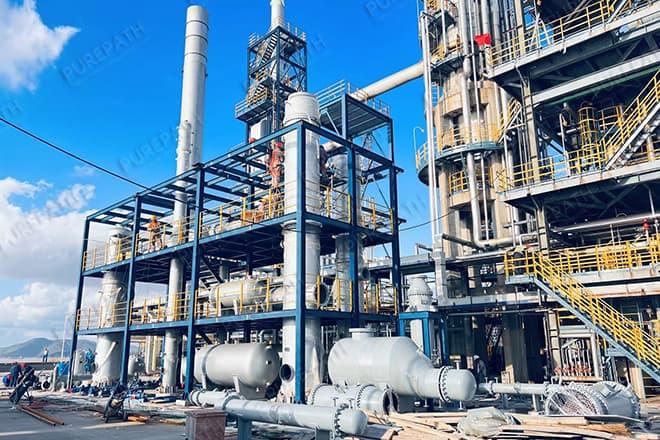Used motor oil: a necessary byproduct of keeping our cars running, but a potential environmental nightmare if not disposed of properly. Traditionally, re-refining used oil has offered a solution, but the process itself hasn't always been eco-friendly. Thankfully, the tide is turning! Green technologies are taking center stage in waste oil distillation, paving the way for a more sustainable future.
Why Distill Waste Oil?
Waste oil re-refining offers a significant environmental advantage. Here's why:
Reduced Reliance on Virgin Oil: Extracting crude oil is a resource-intensive process with a hefty carbon footprint. Re-refining used oil requires less energy, reducing greenhouse gas emissions.
Conserving Resources: Instead of throwing away valuable resources, re-refining converts used oil into high-quality lubricants and fuels, extending their lifespan.
Minimizing Waste: Landfills are overflowing, and used oil shouldn't add to the problem. Re-refining keeps this potentially harmful material out of our landfills.
The Green Revolution in Distillation
While re-refining offers environmental benefits, there's always room for improvement. Here's where green technologies come in:
Advanced Distillation Techniques: New methods like vacuum distillation allow for processing at lower temperatures, reducing energy consumption and emissions.
Water-based Separation Processes: These techniques eliminate the need for harsh solvents, minimizing environmental impact and worker exposure to harmful chemicals.
Catalysts and Additives: By using environmentally friendly catalysts and additives, re-refiners can optimize the process, boost efficiency, and improve the quality of the final product.
Closed-Loop Systems: These innovative systems capture and recycle waste streams generated during distillation, minimizing emissions and water usage.
Benefits Beyond the Barrel
Green technologies in waste oil distillation offer more than just environmental advantages:
Improved Worker Safety: By reducing reliance on hazardous chemicals and lowering operating temperatures, green technologies create a safer work environment for re-refinery personnel.
Community Benefits: Minimized emissions and water usage translate to cleaner air and water for surrounding communities.
A Sustainable Future for Waste Oil
The integration of green technologies in waste oil distillation paints a brighter picture for the future. As these technologies continue to develop, we can expect even greater sustainability benefits. By embracing innovation, we can turn waste oil from a potential environmental threat into a valuable resource, contributing to a more sustainable future for our planet.
What You Can Do:
Demand Responsibly Sourced Lubricants: Look for brands that use re-refined oil in their products.
Support Green Initiatives: Advocate for policies that incentivize the use of green technologies in waste oil re-refining.
Spread Awareness: Educate others about the importance of proper waste oil disposal and the benefits of green re-refining.
By working together, we can ensure that used oil gets a second life, minimizing its environmental impact and paving the way for a more sustainable future. Let's keep the wheels turning and the environment thriving, one drop of re-refined oil at a time!

